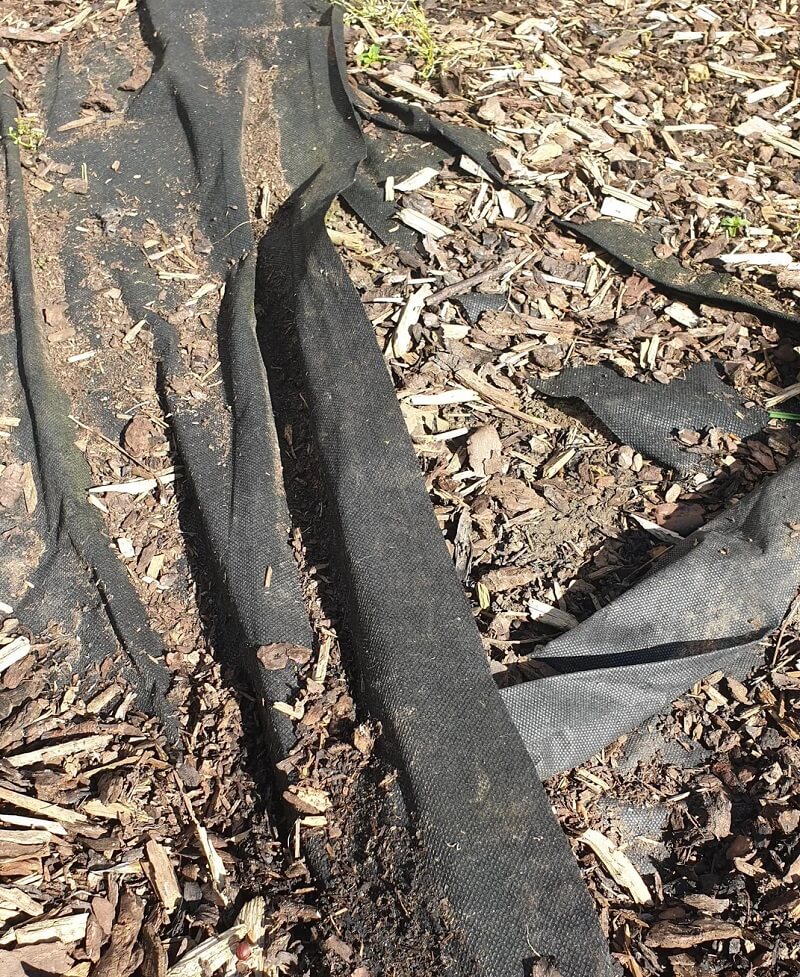A Reddit post is sparking a heated discussion among gardening enthusiasts about a controversial landscaping practice.
The post, which has gained traction in the r/Gardening community, features a photo of layered materials in a garden bed, including a rubber ground sheet, soil, black fabric, and bark mulch.

The original poster, a new homeowner, asked about the purpose of the black fabric layer, unaware they had stumbled upon a hot-button issue in the gardening world. This material, commonly known as landscaping fabric or weed barrier, is marketed as a solution to prevent weed growth in garden beds.
However, the comments section was quickly filled with passionate responses from experienced gardeners, many of whom expressed strong opinions against the use of landscaping fabric.
One commenter didn't mince words, stating: "It's weed cloth and it's s***."
Another user added: "It exists solely to aggravate anyone who actually wants to use that strip of soil in the future. It's sold as a weed barrier, but that is a lie because weeds do just as well growing on top of it."
Landscaping fabric can prevent beneficial organisms from enriching the soil, hinder plant growth, and create long-term issues for future gardening efforts. Additionally, as roots grow through the fabric over time, they become difficult to remove without damaging the plants.
Instead of relying on artificial barriers, eco-friendly alternatives can provide similar benefits without the drawbacks.
Native plant lawns, for example, can save homeowners time and money on lawn care while reducing water bills. These natural alternatives also create healthier ecosystems for pollinators, which play a crucial role in protecting our food supply.
For those looking to replace traditional lawns, options like clover, buffalo grass, and xeriscaping create attractive, environmentally friendly landscapes. Even partially replacing a lawn with these alternatives benefits homeowners and the planet.
By embracing natural, sustainable landscaping practices, homeowners create beautiful, easy-to-maintain outdoor spaces that contribute to a healthier environment for years to come.
Join our free newsletter for easy tips to save more and waste less, and don't miss this cool list of easy ways to help yourself while helping the planet.









